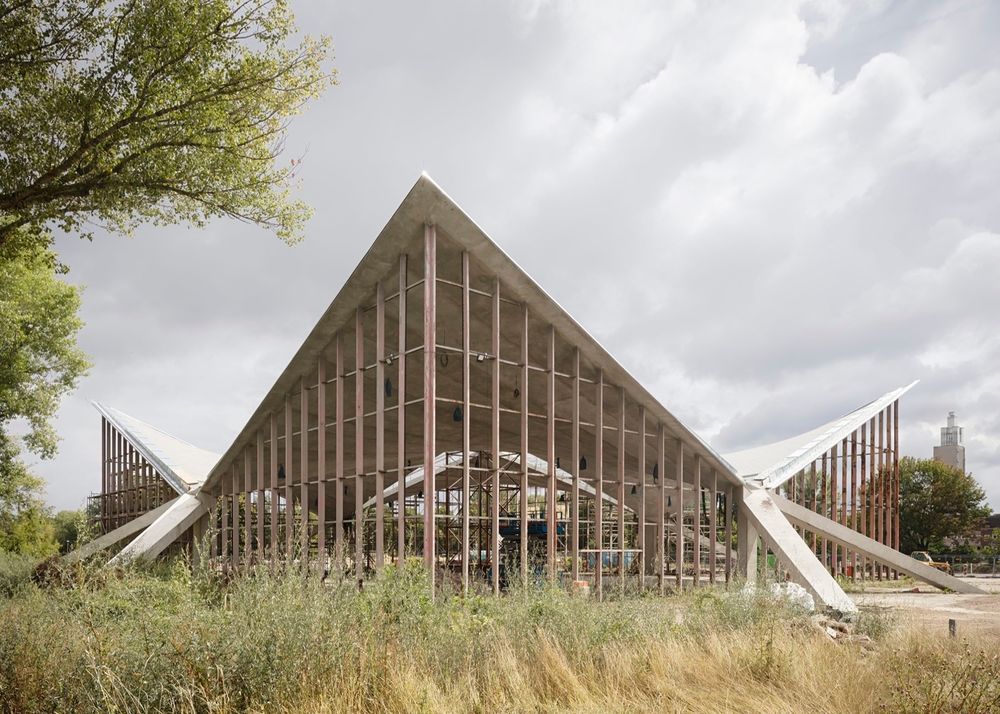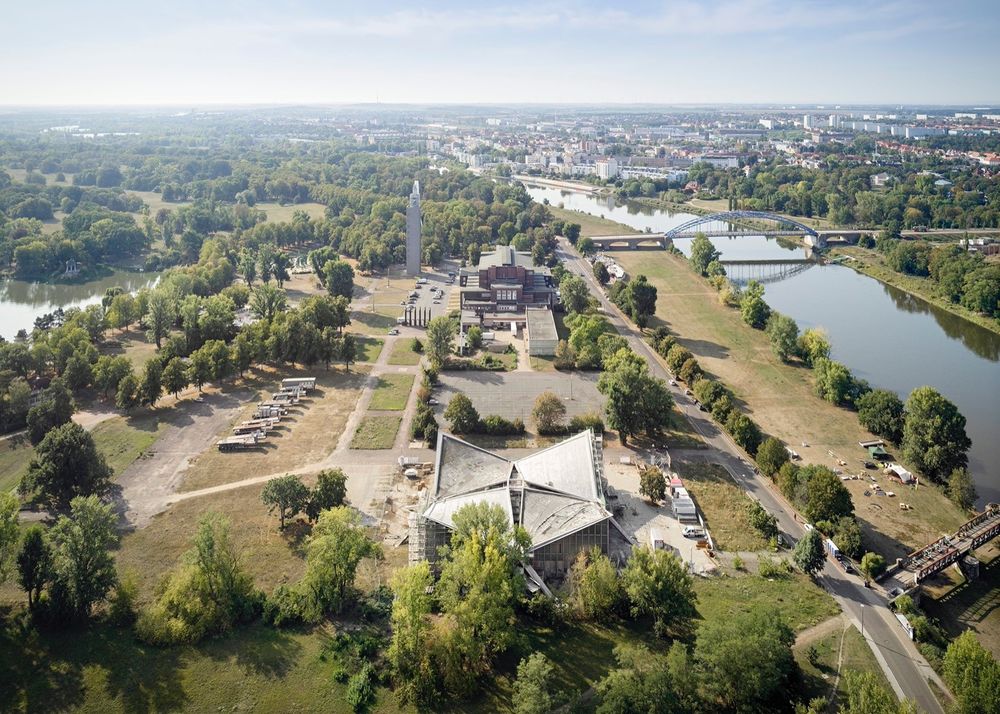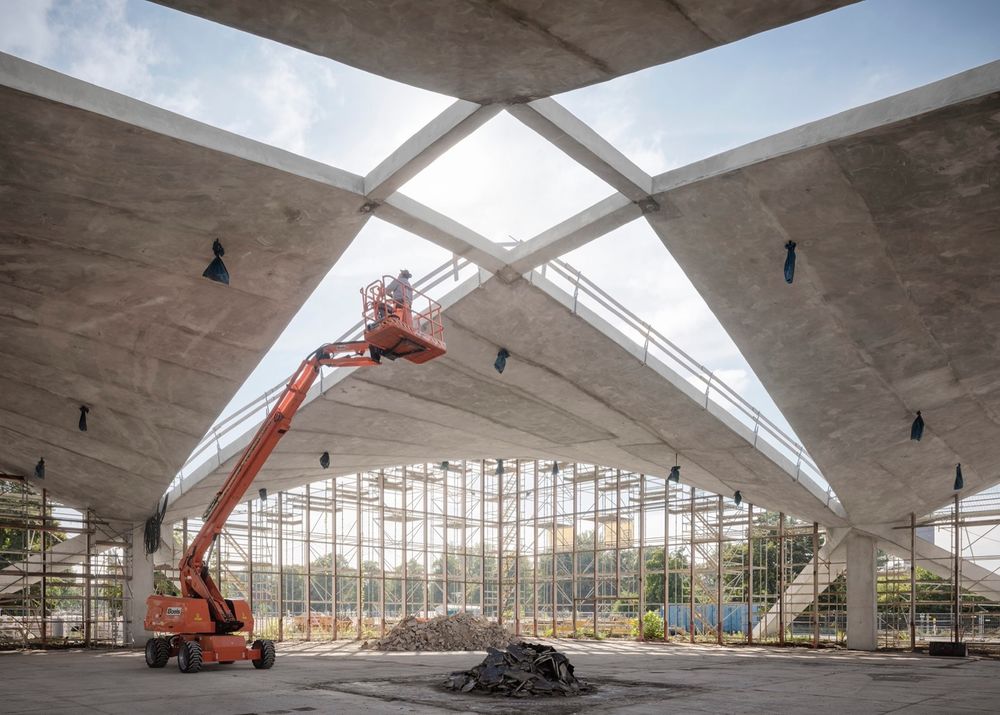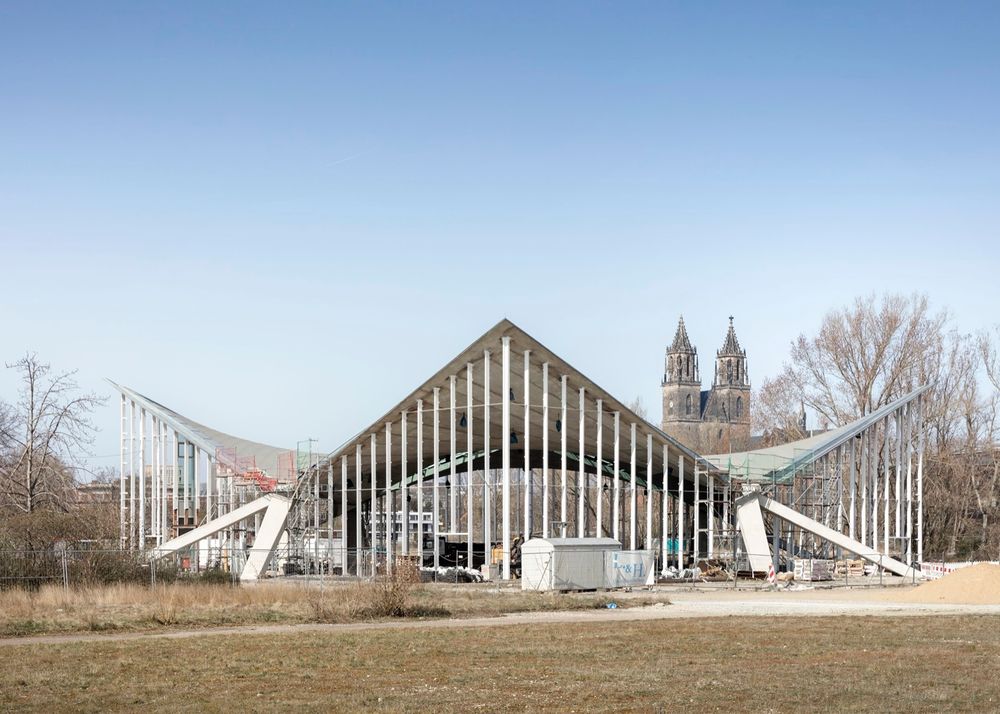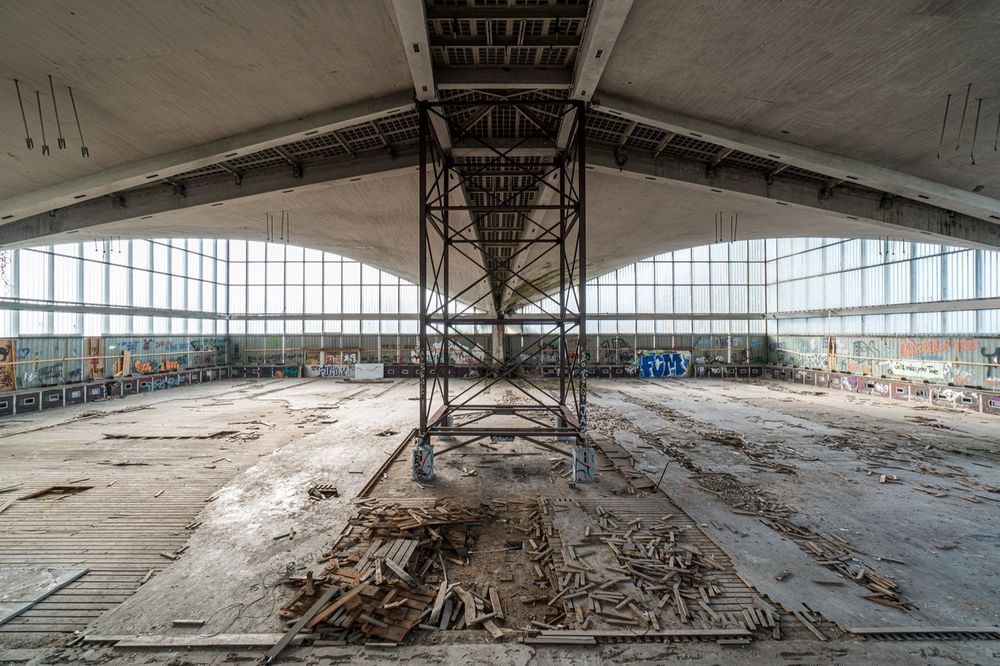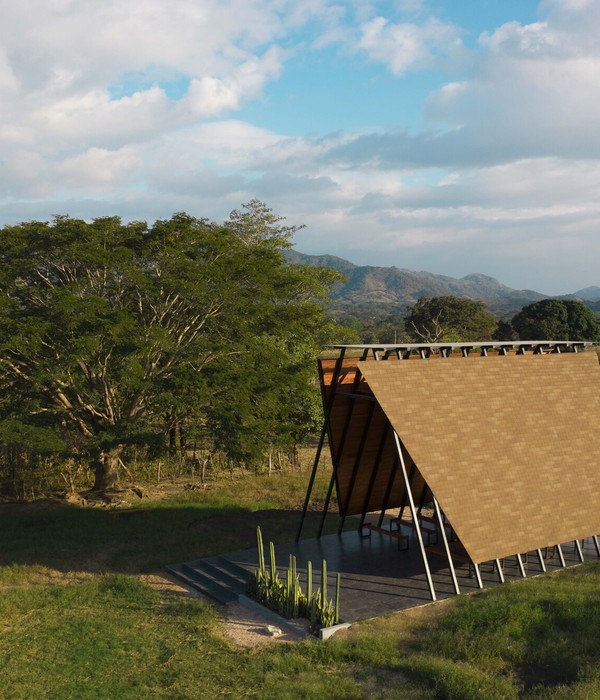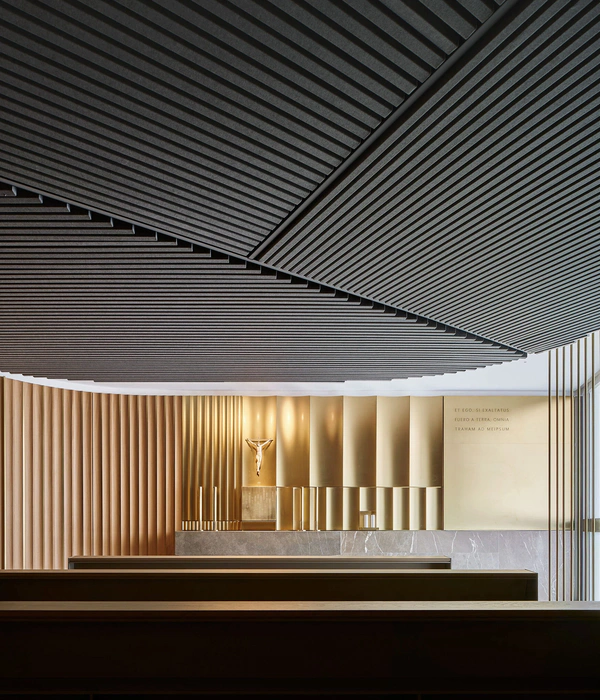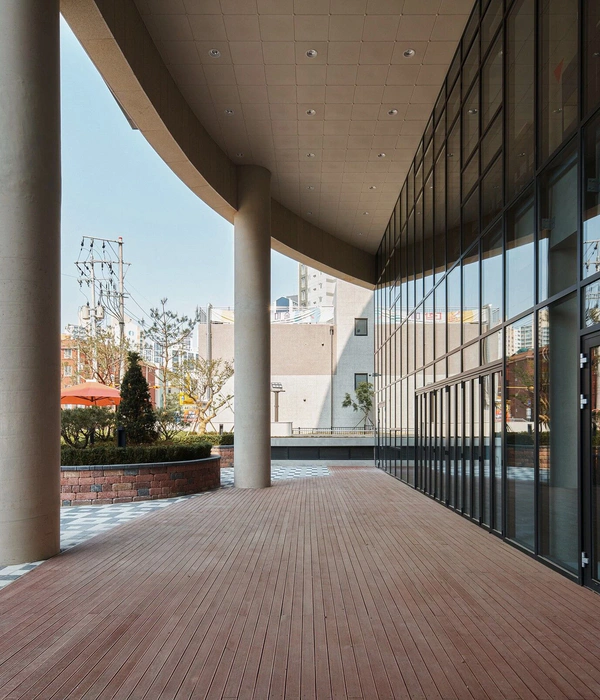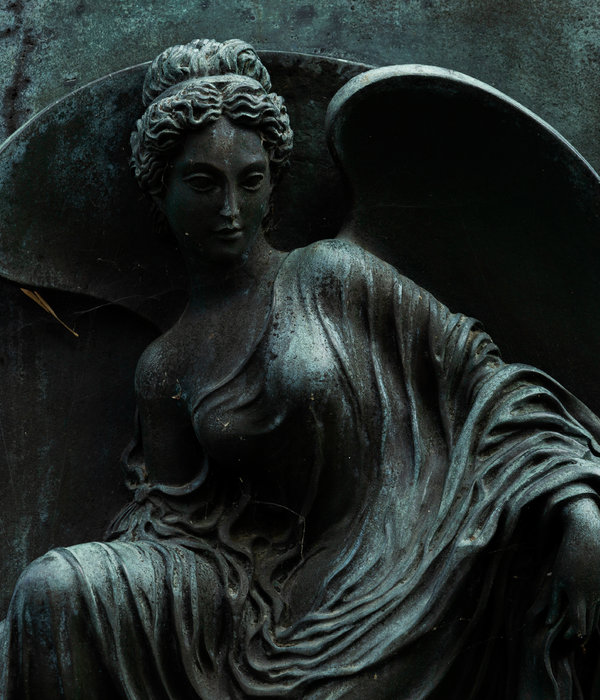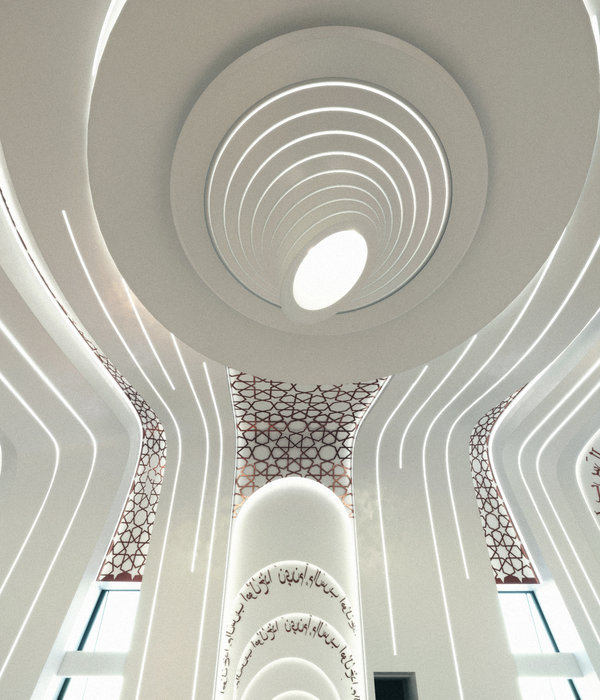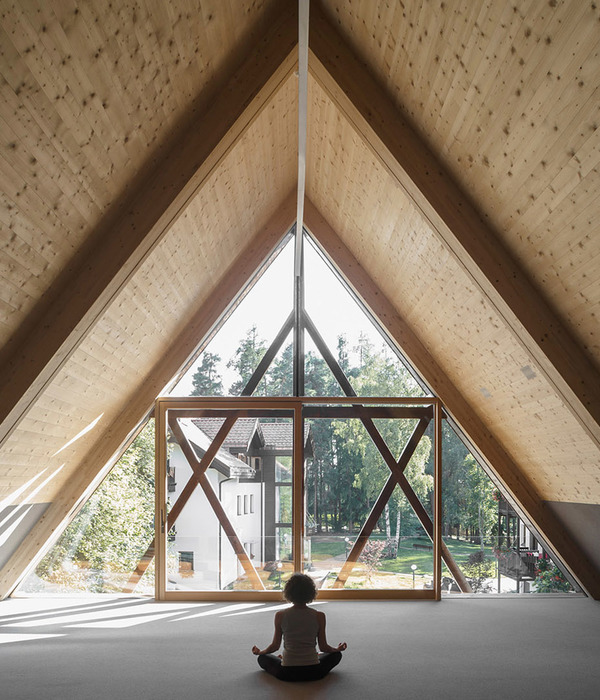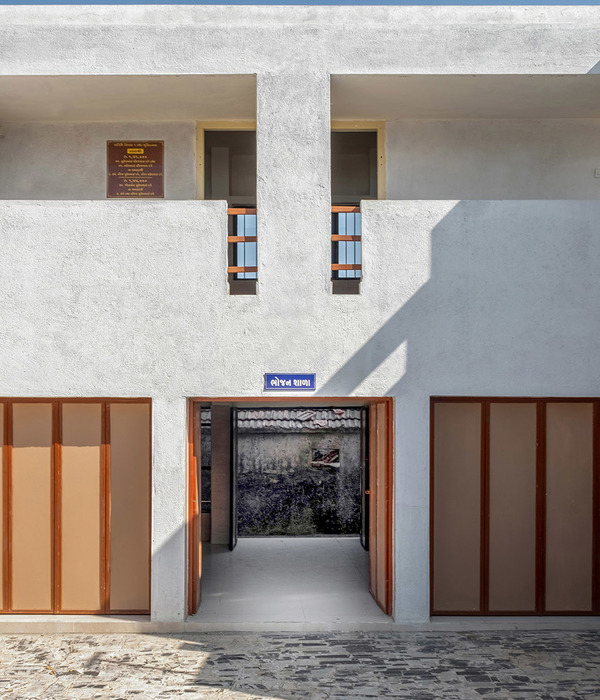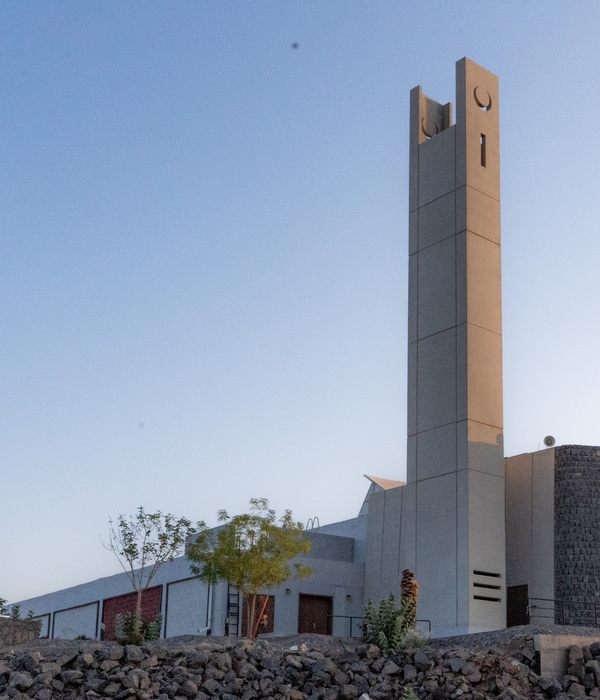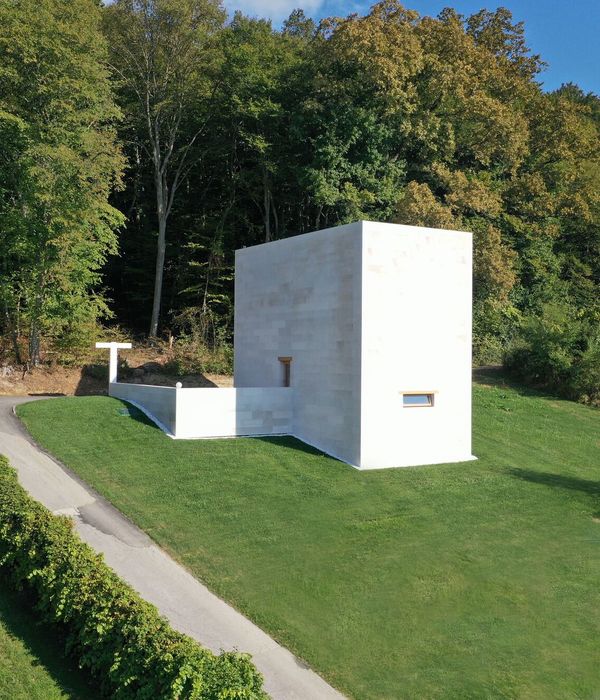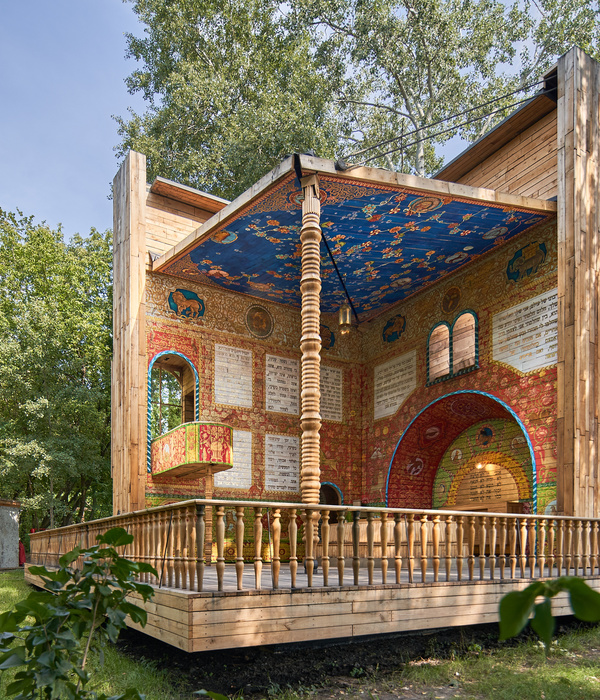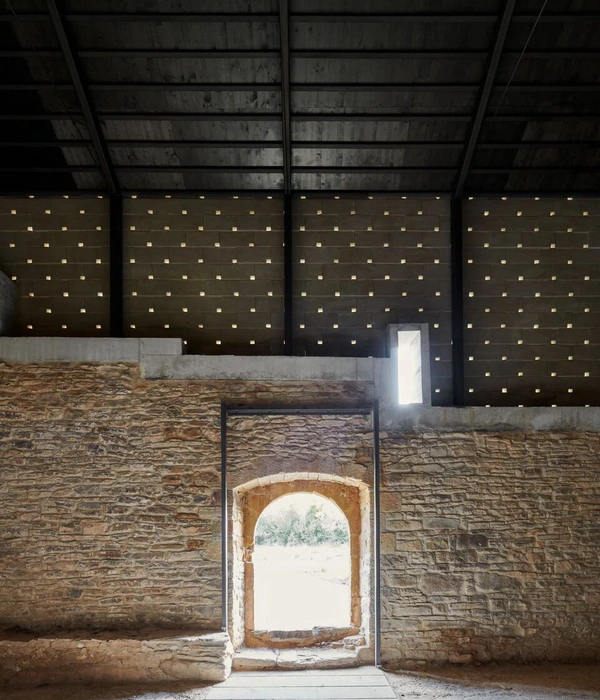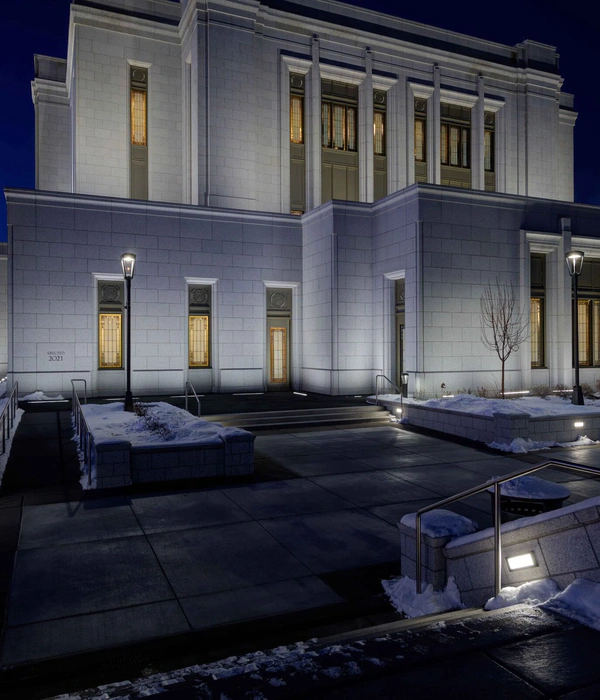马格德堡双曲面壳体屋顶建筑丨德国马格德堡丨gmp
- 项目名称:马格德堡双曲面壳体屋顶建筑
- 项目类型:活动、展览场所
- 项目地点:德国马格德堡
- 项目面积:3948㎡
- 设计方:gmp
- 设计时间:2017年
- 完工时间:2024年
- 主要材料:碳纤维混凝土,玻璃砖,玻璃
- 项目业主:马格德堡州首府政府城市建筑管理公司
2024 年 6 月 20 日,由乌尔里希·穆特(Ulrich Müther)于 1969 年设计的位于马格德堡的双曲面壳体屋顶建筑重新隆重开放。经过二十多年的空置,这座曾经破旧不堪的混凝土外壳建筑在 2019 年至 2024 年期间,由州首府马格德堡市政府委托并按冯·格康,玛格及合伙人建筑设计事务所(gmp)的设计进行了大规模翻新和改造。gmp 的设计重点是保持壳体屋顶的空间效果,并将这座自 1998 年起就被列入保护名录的建筑改造成为多功能活动和展览场所,使其重获新生。通过历史建筑保护要求与新设计概念的完美结合,这座焕然一新的双曲面屋顶建筑成为对穆特作品和其他战后后现代主义建筑进行保护和现代化改造的典范。
The Hyparschale in Magdeburg, built in 1969 to a design by Ulrich Müther, was ceremonially reopened on June 20, 2024. After standing vacant for over twenty years, and following the commission by the authorities of the state capital of Magdeburg, the badly dilapidated concrete shell structure was comprehensively restored and converted from 2019 to 2024 to plans by gmp · von Gerkan, Marg and Partners Architects. The focus of gmp’s design has been on retaining the spatial effect of the shell roof and on reviving the building, which was listed as a historic monument in 1998, as a multifunctional venue for events and exhibitions. As a result of the new functional concept combined with conservation requirements the “new” Hyparschale is a guiding example of the preservation and modernization of additional works by Müther as well as other buildings from the post-war era.
▼项目概览
Overall view© Marcus Bredt


▼隔岸远观,Distant view across the river© Marcus Bredt

这座位于易北河东岸的曲面屋顶建筑由结构工程师乌尔里希·穆特(1934-2007 年)设计,由四块双曲抛物面构件组成。规则的双曲面屋顶共覆盖 48 x 48 米的空间,从而大厅完全无柱。因此,这座 1969 年作为马格德堡展览中心的多功能厅而建的建筑也是保存下来的最大同类建筑之一。
▼轴测分析图,axo©gmp Architekten

The structural design of the Hyparschale on the eastern bank of the river Elbe, by structural engineer Ulrich Müther (1934 – 2007), consists of four hyperbolic paraboloids. The regular double-curved roof surfaces cover an area of 48 x 48 meters without any columns inside the hall, making this multipurpose hall from 1969 one of the largest buildings of its kind still in existence.
▼建筑近景,Close view© Marcus Bredt


建筑内部的新空间结构传承了穆特的基本体系,让人们能够以多种方式体验拥有曲面屋顶的开放空间:大厅的四角布置了四个面积为 15 x 15 米的立方体空间单元,以实现州首府马格德堡市提出的小格局空间方案的要求。立方体上方设有回廊,回廊之间通过连廊互连。这种可灵活使用的功能单元为小型活动、研讨会、展览和餐饮功能提供了可相互组合的用房,并在空间上将位于中央的容纳 500 人的大型活动厅围合起来。
The new structures inside the hall, which follow Müther’s square grid design, enhance the experience of the open space beneath the curved roof. In order to create the detailed room schedule requested by the authorities of the state capital of Magdeburg, the design includes four cubes in the corners of the hall, each with a floor area of 15 x 15 meters. The galleries on these cubes are linked by bridges. The flexibly usable layout creates smaller rooms that can be combined for events, seminars, exhibitions, and eateries, accommodating up to 500 people in the center of the hall.
▼内部空间,Interior view© Marcus Bredt

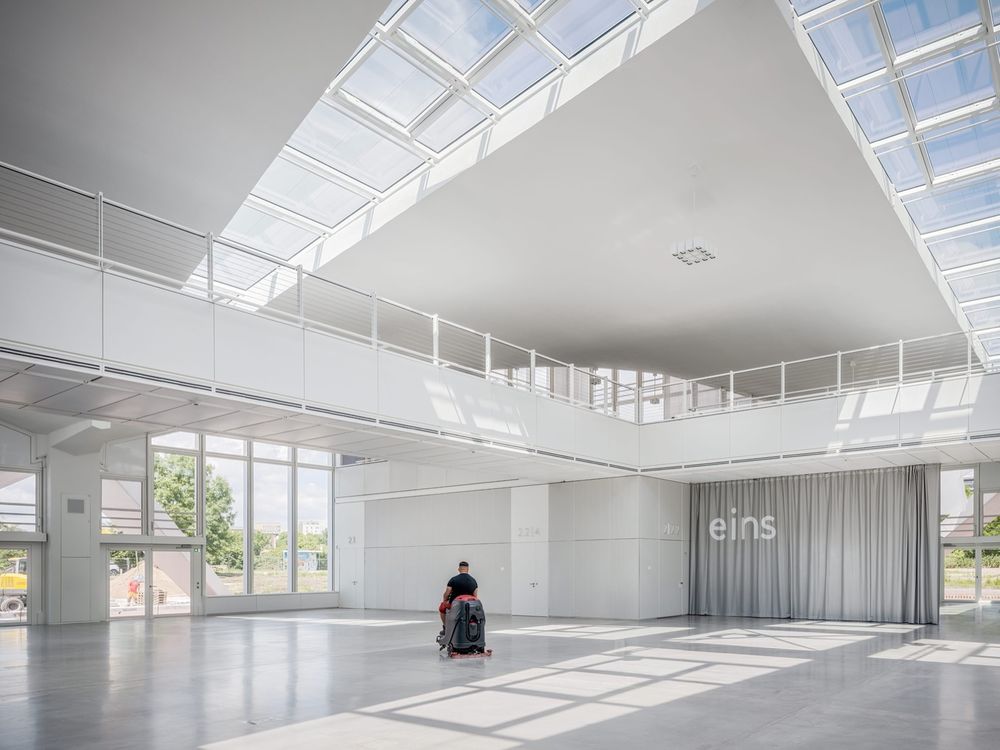

混凝土外壳的翻新改造采用碳纤维混凝土,使屋顶的承重能力不仅得到恢复,甚至还有所提高。旧建筑的采光顶窗原本是用玻璃砖嵌装的,但在当时竣工后不久因漏水而被封闭。经过修缮,壳体之间的采光顶窗也重见天日。
The concrete shells were repaired and upgraded using carbon reinforced concrete, thereby not only restoring the structural strength of the roof but also increasing it. Additionally, the rooflights running between the shells were reopened. These were originally filled with glass bricks but were closed shortly after the building’s completion due to leakages.
▼2020 年施工现场,Construction site in 2020© Marcus Bredt

▼2018 年施工现场,Construction site in 2018© Marco Dziallas Ostmodern

▼1969 年施工现场,Construction site in 1969 © Müther-Archiv an der Hochschule Wismar

在构造和设计方面,新增的室内功能单元与原有的工业风、强调垂直形态的钢与玻璃外立面相得益彰。新建透明玻璃幕墙与马格德堡市中心的城市公园“雷托恩公园”建立了通透视觉关系,在取代了之前半透明工业玻璃幕墙的同时保留了原有的立面肌理。
In terms of construction and design, the new interior structures are reminiscent of the original external facade with its vertical emphasis and industrial steel and glass materials. The new transparent glass facade opens up views to and from Rotehornpark -the city park in the center of Magdeburg- and replaces the former translucent industrial glazing while retaining the original facade structure.
▼总平面图,master plan© gmp Architekten

▼平面图,plan©gmp Architekten



▼剖面图,section©gmp Architekten

业主:马格德堡州首府政府城市建筑管理公司
1969 年设计:乌尔里希·穆特与霍斯特·弗莱塔格合作设计
1969 年施工单位:Gerling & Rausch KG
招标程序:2017 年,中标
改造设计:曼哈德·冯·格康与施特凡·胥茨及克里斯蒂安·海尔蒙特
项目负责人:索菲·冯·曼斯贝格、乌尔苏拉·科佩尔
设计团队:罗莎莉亚·德·坎迪蒂斯、扬-皮特·德姆尔(视觉效果)、安妮特·法比安(BIM)、弗洛里安·伊伦伯格、索尼娅·考茨、安妮特·勒贝尔、包望韬、玛丽亚·沃尔夫、蒂洛·策默(视觉效果)、亚伦·朱伯
gmp 施工监理:莫里茨·布赫霍尔茨、杰西卡·诺伊曼、克里斯托夫·勒纳、维克托·赛卜、 合作单位:A.BB 建筑师事务所 鲁道夫·德罗斯特
结构/消防设计:Prof. Rühle, Jentzsch & Partner, 德累斯顿
机电顾问:Haupt Ingenieurgesellschaft, 莱比锡; Ingenieurbüro Elektrotechnik Dipl.Ing. Andreas Kist, 布尔格市
照明设计:Lichtvision Design, 柏林
声学设计:ADA Acoustics & Media Consultants, 柏林
引导系统:Mo¬ni¬teurs GmbH Kom¬mu¬ni¬ka¬ti¬ons¬de¬sign, 柏林
道路、地下工程和排水设计:IKM Ingenieurkontor 马格德堡
建筑物理 Ingenieurbüro Kriegenburg, 马格德堡; ITG Energieinstitut GmbH, 马格德堡;
碳纤维混凝土技术:CARBOCON, 德累斯顿
建设周期:一期工程 2019–2021 年, 二期工程 2021-2024 年
建筑面积:3948 平方米
规模 :
活动区 1-4:500 个座席
会议室 2.1/4.2:127/127 个座席
Client: The state capital of Magdeburg, Eigenbetrieb Kommunales Gebäudemanagement (Department for Communal Facilities Management)
Design 1969: Ulrich Müther, in cooperation with Horst Freytag
Building Work 1969: Gerling & Rausch KG
VgV Negotiation Process: contract awarded in 2017
Conversion Design: Meinhard von Gerkan and Stephan Schütz with Christian Hellmund.
Project Leads: Sophie von Mansberg, Ursula Köper
Team: Rosaria de Canditiis, Jan-Peter Deml (Visualizations) Annett Fabian (BIM), Florian Illenberger, Sonja Kautz, Annette Löber, Bao Wangtao, Maria Wolff, Thilo Zehme (Visualizations), Aaron Zuber
Site Supervision (gmp): Moritz Buchholz, Jessica Neumann, Christoph Rohner, Viktor Saib, in cooperation with A.BB Architects, Rudolf Droste
Structural Engineering / Fire Protection: Prof. Rühle, Jentzsch & Partner, Dresden
MEP: Haupt Ingenieurgesellschaft, Leipzig; Ingenieurbüro Elektrotechnik Dipl.Ing. Andreas Kist, Burg
Lighting Design: Lichtvision Design, Berlin
Acoustics Engineering: ADA Acoustics & Media Consultants, Berlin
Guide System: Moniteurs GmbH Communication Design, Berlin
Highways, Civil Engineering, Drainage Technology: IKM Ingenieurkontor Magdeburg
Building Physics: Kriegenburg Consulting Engineers, Magdeburg; ITG Energieinstitut GmbH, Magdeburg
Carbon Concrete Technology: CARBOCON, Dresden
Construction Period: Phase I 2019 – 2021, Phase II 2021 – 2024
GFA: 3,948 m²
Capacities
Events Areas 1 – 4: 500 seats
Seminar Rooms 2.1/4.2: 127/127 seats
